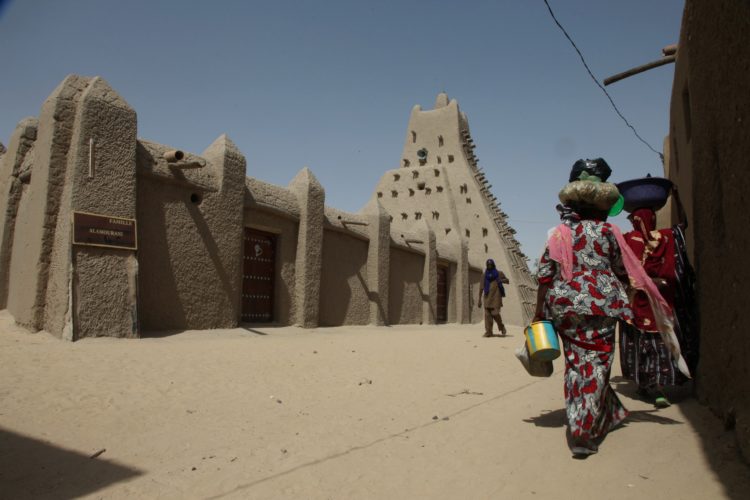The International Criminal Court – better known for sentencing war criminals – has jailed Ahmad al-Faqi al-Mahdi for nine years. He admitted to heading rebel forces responsible for the destruction of historic mausoleums at the world heritage site in Mali in 2012. He led the morality section of the jihadist group Ansar Dine, known as the Hisbah, who disapprove of the Sufi-influenced form of Islam practised in Timbuktu.

Destroyed were the 16th century mausoleum of Sidi Mahmoud, the rector of Timbuktu’s Sankore University, and the shrine of Sidi Ahmed ar-Raqqad,the author of a 17th century book on traditional pharmacology.
‘The shrines are important links to our past, to our identity here in the present, and to the hopes we have for the future.’
El Hadj Djitteye, a local journalist, explained the importance of these monuments. ‘One of biggest humiliations the Islamist militants inflicted on our city before they fled was the destroying of these shrines, in particular the tombs of the saints, which are the shrines of our ancestor’s shrines. The shrines are important links to our past, to our identity here in the present, and to the hopes we have for the future.’
Ahead of the trial, Djitteye explained that if Ahmad al-Faqi al-Mahdi showed remorse, this would be of consequence. ‘Yes, it’s very important for the people of Timbuktu. If he personally
recognises his fault for his actions, it means he is looking for forgiveness. That’s good, but nothing can replace the loss of the tombs or soothe the tears and heartbreak of natives of Timbuktu.’
Many of the destroyed shrines have been reconstructed, by local craftsmen using traditional materials.
It could be a landmark case in pursuing those who destroyed Palmyra and other sites of archaeological interest. Many however think that those who committed human rights abuses in northern Mali should be pursued first.
